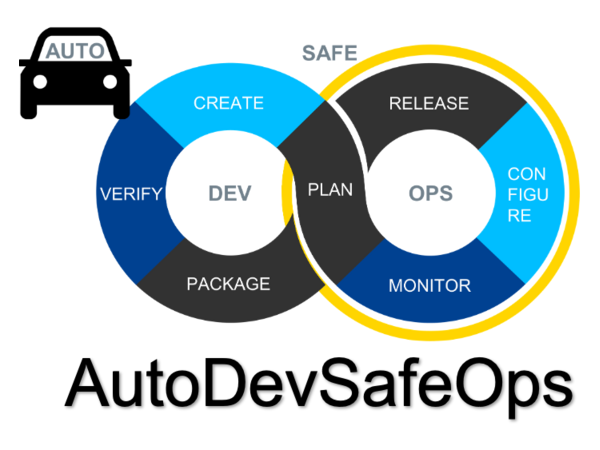Research Project AutoDevSafeOps

Research Project AutoDevSafeOps
![BMBF_CMYK_Gef_M [Konvertiert]](https://www.inchron.com/wp-content/uploads/2021/09/BMBF_gefoerdert_2017_en.jpg)
Funding Code:
01IS22087I
Mobility is being reshaped through the automation and networking of vehicles, bringing new services through digitalization. But this also raises new challenges. The quantity of data being generated and analyzed within the vehicle is snowballing, demanding the deployment of high-performance computing (HPC). As a result, new approaches are needed for the microelectronic systems used to create HPC platforms, along with suitable computing and software architectures. And, unlike traditional HPC applications, the automotive environment demands the highest reliability and security coupled with real-time capability.
Autonomous driving (AD) features continue to be developed and deployed. Many of these will improve upon the implementations deployed in vehicles already on the road. As a result, software in the field will need to be replaced with newer versions that deliver improved capability using existing hardware and sensor technology. The requirements related to such improvements will not be known at the time of an automotive platform’s definition and definitely cannot be planned for in any meaningful way. Thus, there is a need to improve the control, resilience, and reliability of automotive systems so that even critical functions can be upgraded, replaced, or even merged over the vehicle’s lifetime. All these aspects require that new methods and tools be developed to support this new approach to software development.
The AutoDevSafeOps project brings together industry and academia to determine the status quo and clarify the automotive industry’s needs as this approach to automotive development progresses.
The project is part of the MANNHEIM initiative of the BMBF (https://www.elektronikforschung.de/foerderung/bekanntmachungen/mannheim). It constitutes a range of research projects tackling issues covering the orchestration of on-board and off-board functionalities and how best to combine innovative microelectronics that are robust, energy-efficient, and, to the extent necessary, AI-capable.
The joint research projects are intended to create the conditions for significantly strengthening the innovation potential of the German automotive industry in the field of digitalization and, in particular, autonomous driving and for expanding technological sovereignty in international competition. Future E/E architectures will be examined along with intelligent sensors and actuators, computing cores, and other aspects in the context of hardware-software co-design. The goal is to determine how best to implement technology capable of handling large amounts of data while offering the highest functional security, availability, and reliability for cross-domain and service-oriented architectures.
A key aspect for INCHRON is the analysis of methods and tools for software development in what is rapidly becoming a “system of systems.” New methods require exploration that can coordinate complex meta-systems of heterogenous software components at system runtime. This will demand improved coordination of integration of sub-systems and software components, along with an integrative value chain for hardware and software for next-generation vehicle architectures. Topics for research range from design, validation, maintenance, and use to variant and version management. Other aspects will need to review challenges such as complexity and compatibility management, re-engineering, sustainable software engineering, agility (DevOps), and quality management for fast update and upgrade cycles. One especially challenging task is determining how to handle software modules deployed in heterogenous systems that mix deterministic and non-deterministic systems with traditional rule-based and machine-learning components.
Timing will, of course, be a core focus for INCHRON. Correct timing must be ensured throughout, both at development time when used in development mode and later after deployment in the field, in operational mode. Therefore, INCHRON will focus on both our simulator chronSIM and chronVIEW for trace data analysis. Both tools provide comprehensive support for the required continuous development process, enriched by the extensions and new evaluations developed in the context of the AutoDevSafeOps project.
We thank the BMBF for the funding for the next 3 years, which enables us to collaborate with many renowned and notable partners from science and industry.
